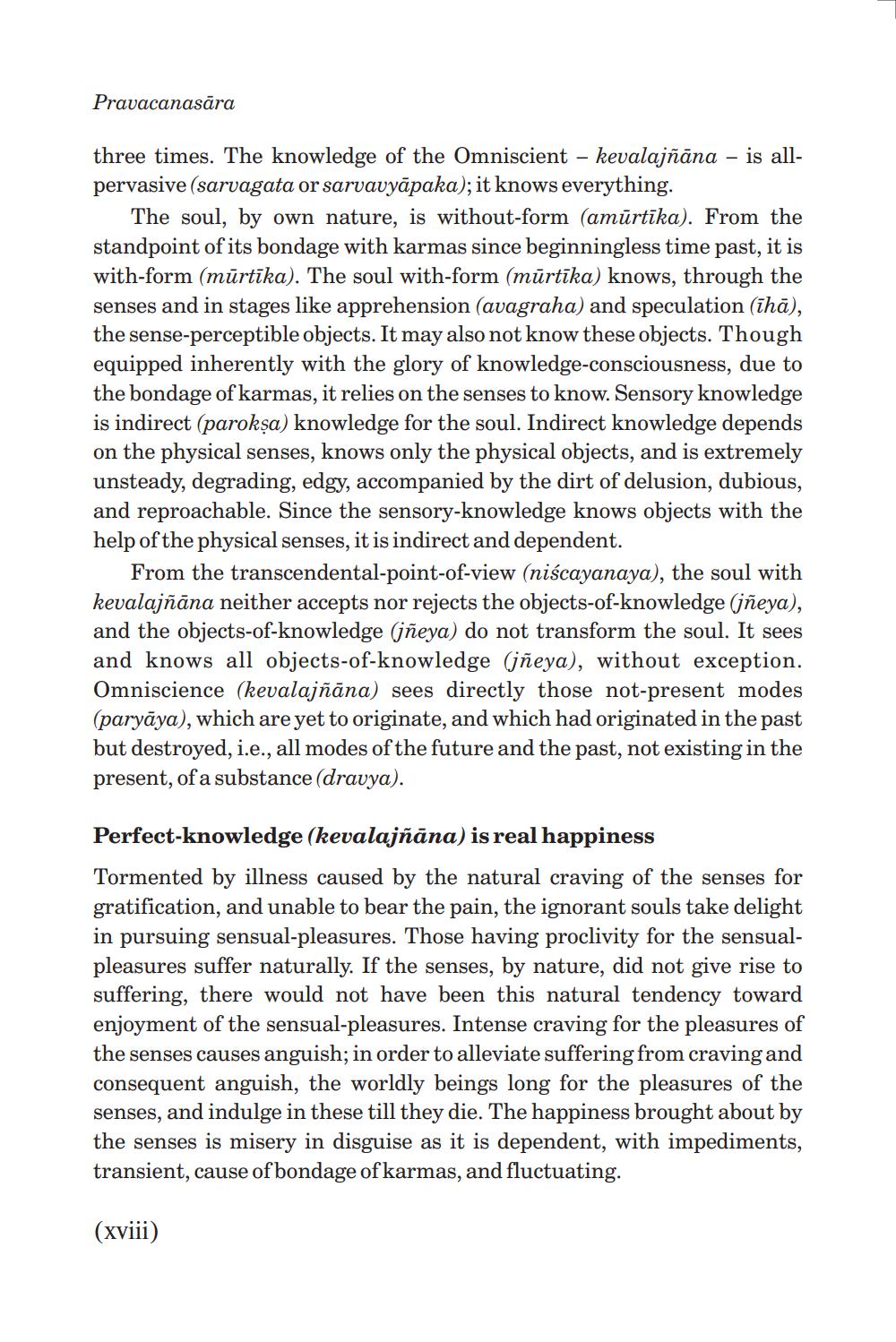________________
Pravacanasāra
three times. The knowledge of the Omniscient - kevalajñāna - is allpervasive (sarvagata or sarvavyāpaka); it knows everything.
The soul, by own nature, is without-form (amūrtīka). From the standpoint of its bondage with karmas since beginningless time past, it is with-form (mūrtīka). The soul with-form (murtīka) knows, through the senses and in stages like apprehension (avagraha) and speculation (ihā), the sense-perceptible objects. It may also not know these objects. Though equipped inherently with the glory of knowledge-consciousness, due to the bondage of karmas, it relies on the senses to know. Sensory knowledge is indirect (paroksa) knowledge for the soul. Indirect knowledge depends on the physical senses, knows only the physical objects, and is extremely unsteady, degrading, edgy, accompanied by the dirt of delusion, dubious, and reproachable. Since the sensory-knowledge knows objects with the help of the physical senses, it is indirect and dependent.
From the transcendental-point-of-view (niscayanaya), the soul with kevalajñāna neither accepts nor rejects the objects-of-knowledge (jñeya), and the objects-of-knowledge (jñeya) do not transform the soul. It sees and knows all objects-of-knowledge (jñeya), without exception. Omniscience (kevalajñāna) sees directly those not-present modes (paryāya), which are yet to originate, and which had originated in the past but destroyed, i.e., all modes of the future and the past, not existing in the present, of a substance (dravya).
Perfect-knowledge (kevalajñāna) is real happiness Tormented by illness caused by the natural craving of the senses for gratification, and unable to bear the pain, the ignorant souls take delight in pursuing sensual-pleasures. Those having proclivity for the sensualpleasures suffer naturally. If the senses, by nature, did not give rise to suffering, there would not have been this natural tendency toward enjoyment of the sensual-pleasures. Intense craving for the pleasures of the senses causes anguish; in order to alleviate suffering from craving and consequent anguish, the worldly beings long for the pleasures of the senses, and indulge in these till they die. The happiness brought about by the senses is misery in disguise as it is dependent, with impediments, transient, cause of bondage of karmas, and fluctuating.
(xviii)




